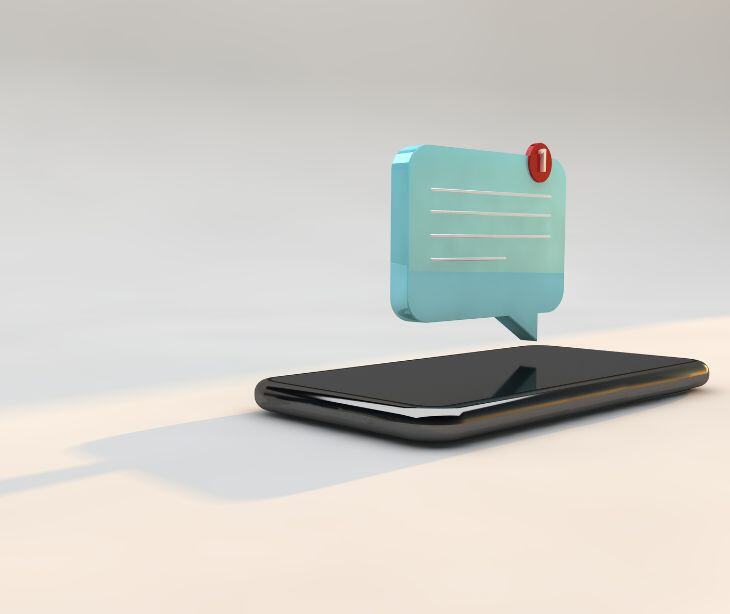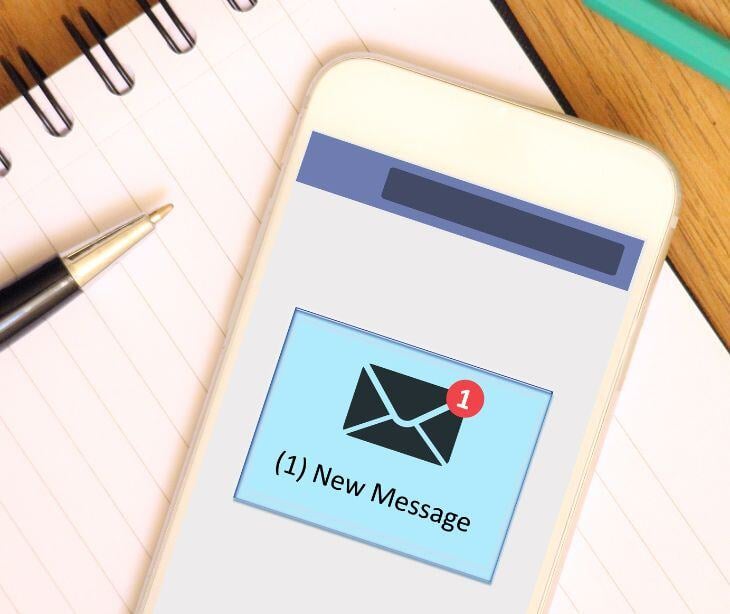3 min read
How to handle accidental PHI disclosures via text messaging
Liyanda Tembani
July 26, 2023

Accidental disclosure of protected health information (PHI) can occur in various situations, jeopardizing patient confidentiality. Healthcare organizations must understand the potential scenarios and the impact of such disclosures and follow these guidelines for handling these incidents while maintaining compliance with HIPAA regulations.
The impact of accidental disclosure
Accidental disclosure of PHI carries significant risks and potential consequences:
- Reputational damage: Accidental disclosures can erode patient trust and damage the reputation of healthcare providers, leading to a loss of confidence in the organization's ability to protect patient privacy.
- Legal liabilities: Healthcare providers may face legal repercussions and potential lawsuits from affected individuals for the unauthorized disclosure of PHI.
- Financial penalties: Violations of HIPAA regulations can result in substantial monetary fines imposed by regulatory authorities, depending on the severity and circumstances of the breach.
- Regulatory investigations: Accidental disclosures can trigger investigations by regulatory bodies, such as the Office for Civil Rights (OCR), leading to audits, assessments, and potential sanctions.
Related: What are the penalties for HIPAA violations?
1. Immediate response and containment
When an accidental disclosure occurs, respond promptly to mitigate potential harm:
- Acknowledge the incident: Healthcare providers should promptly acknowledge the accidental disclosure, treating it as a serious incident that requires immediate attention.
- Assess the nature and extent of disclosure: Thoroughly evaluate the information disclosed, determining the sensitivity of the data and the potential impact on the individuals involved. This assessment will guide subsequent actions.
- Stop further distribution: Take immediate steps to stop further distribution of the message, whether through the text messaging platform or any other means. This helps minimize the potential exposure of PHI to unintended recipients.
2. Retrieving and managing the message
Efforts should be made to retrieve the message from unintended recipients, if feasible:
- Attempt message retrieval: Healthcare providers can reach out to unintended recipients and request the immediate deletion of the message containing PHI. Clearly communicate the accidental nature of the disclosure and emphasize the importance of protecting patient privacy.
- Limitations of control: Recognize that once a message is sent, complete control over its dissemination is not guaranteed. Healthcare providers should focus on minimizing potential harm and taking appropriate actions within their control.
3. Compliance with HIPAA regulations
- Understand the HIPAA privacy rule and security rule: Familiarize yourself with the requirements and guidelines outlined in the HIPAA privacy rule and security rule. These regulations provide a framework for protecting PHI and ensuring patient privacy.
- Reporting procedures and timelines: Healthcare providers should be aware of the reporting procedures and timelines for breaches under HIPAA. Depending on the nature and severity of the breach, there may be specific requirements for reporting to regulatory authorities and affected individuals.
- Potential consequences of noncompliance: Noncompliance with HIPAA regulations can lead to financial penalties, legal liabilities, and reputational damage. Healthcare providers must prioritize compliance to protect patient privacy and maintain trust.
4. Notification and communication
Determining the need for notification to affected parties includes :
- Conducting a risk assessment: Perform a risk assessment to determine if there is a significant risk of harm to the individuals affected by the accidental disclosure. This assessment will help guide the decision-making process regarding notification.
- Clear and concise communication: If notification is necessary, provide clear and concise information about the incident, the steps taken to mitigate the situation, and any potential consequences. Strive for transparency while respecting patient privacy concerns.
5. Investigation and documentation
- Internal investigation: Healthcare providers should conduct a thorough internal investigation to identify the root causes and vulnerabilities that led to the accidental disclosure. This investigation helps uncover any weaknesses in existing protocols and systems.
- Documentation: Maintain detailed records of the incident, including the date, time, description of the information disclosed, and the steps taken to address the situation. Comprehensive documentation aids in potential investigations and demonstrates a commitment to patient privacy.
6. Preventing future incidents
- Review and update communication protocols and policies: Regularly review and update communication protocols and policies to ensure they align with industry best practices and address potential vulnerabilities.
- Staff training: Conduct regular training sessions to educate staff about privacy and security best practices. Training should cover topics such as :
- Proper handling of PHI
- Secure messaging protocols
- The importance of double-checking recipient information
- Additional safeguards: Consider additional safeguards, such as HIPAA compliant text messaging platforms or encryption, to minimize the risk of accidental disclosures and enhance overall data security.
7. Learning and improving
Accidental disclosures should serve as learning opportunities for healthcare providers:
- Continuous assessment and improvement: Regularly assess privacy policies and procedures, staying informed about best practices and updates to HIPAA regulations. Continuously strive for improvement by addressing any identified gaps or vulnerabilities.
- Organizational culture: Foster a culture of privacy and security awareness within the organization, emphasizing the importance of protecting patient privacy as a core value.
Handling accidental disclosure of PHI via text messaging requires prompt and appropriate action from healthcare providers.
Subscribe to Paubox Weekly
Every Friday we bring you the most important news from Paubox. Our aim is to make you smarter, faster.




